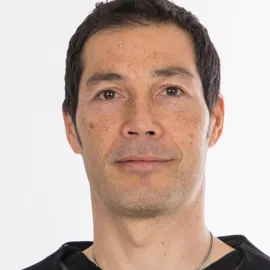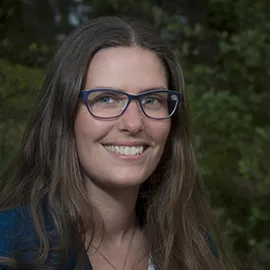BIOPROSP_25
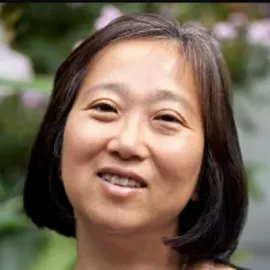
Eriko Takano
Manchester Synthetic Biology Research Centre, SYNBIOCHEM & University of Manchester
Eriko Takano is Professor of Synthetic Biology in the Manchester Institute of Biotechnology, Department of Chemistry, School of Natural Sciences, Faculty of Science and Engineering, at the University of Manchester. She is one of three directors for the EPSRC/BBSRC-funded Manchester Synthetic Biology Research Centre, SYNBIOCHEM. Since 2017, she is the Section Head of Chemical Biology and Biological Chemistry and in 2018 to present, she is the Deputy Head of the Chemistry Department.
Eriko is internationally recognized as a pioneer in the synthetic biology of microbes for antibiotic production. She has been working in both industrial and academic Streptomyces research for 26 years. She studied pharmacy at Kitasato University, School of Pharmacy, Tokyo, Japan. After working as a researcher at the Department of Genetics of Meiji Seika Kaisha, Yokohama, Japan, for four years, she moved to the John Innes Center, Norwich, UK, where she obtained her PhD from the University of East Anglia in 1994 and worked as a postdoc in the Molecular Microbiology department until 2002. After three years as Assistant Professor in the Department of Microbiology / Biotechnology, University of Tübingen, Germany, she was appointed as a Rosalind Franklin Fellow in Microbial Physiology at the Groningen Biomolecular Sciences and Biotechnology Institute (GBB), University of Groningen, The Netherlands in 2006 and as an Associate Professor in Synthetic Microbiology at 2010. Since September 2012 she is Professor of Synthetic Biology at the Manchester Institute of Biotechnology and from 2014 the Biotechnology and Synthetic Biology Research Theme Director in Faculty of Life Sciences.
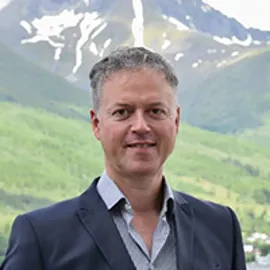
Hogne Hallaråker
Arctic Bioscience
Mr. Hallaråker is the founder and developer of Arctic Bioscience´s business concept. He is an entrepreneur with more than 15 years of experience in the Nutraceutical and Biomarine industries. He holds an MSc in Marine Biology and Aquaculture from the University of Bergen.
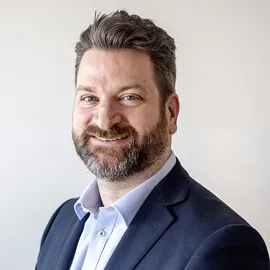
Erik-Jan Lock
Nofima
Erik-Jan is the Research Director at the Department of Nutrition and Feed Technology in the Aquaculture Division. With a master’s in aquaculture from Wageningen University and a PhD in fish physiology from Radboud University, he has extensive experience as a senior scientist and research group leader at NIFES and the Institute of Marine Research, specializing in fish nutrition.
His recent work focuses on researching new feed raw materials for fish farming, such as insects and mussels, leading several national and international projects in this area. He served on the Norwegian VKM Feed Panel (2014–2022) and an ICES working group (2018–2023), and held a 20% professorship at the University of Bergen (2018–2023).
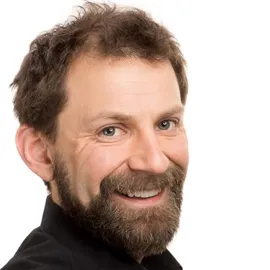
Odd Erik Gundersen
NTNU
Odd Erik Gundersen is the Chief AI Officer at the renewable energy company Aneo AS, a co-founder of Virtur AS, and an adjunct associate professor at the Norwegian University of Science and Technology (NTNU) in Trondheim, Norway, where he teaches and supervises PhD and Master students in AI. Gundersen has been the PI of several research projects. He received both his PhD and MSc in AI from the Norwegian University of Science and Technology. Gundersen has applied AI in the industry, mostly for startups, since 2006. He is an expert in reproducibility of artificial intelligence and machine learning research and has developed guidelines for reproducibility in data science and AI that have been adopted by both premier conferences and journals. Currently, he investigates how AI can be applied in the renewable energy sector and for driver training.
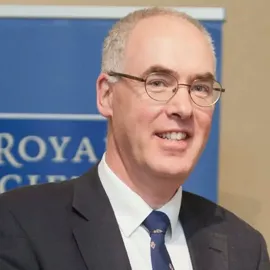
Marcel Jaspars
Department of Chemistry University of Aberdeen
- Head of the Department of Chemistry, University of Aberdeen 2016-2019
- Scientific Project Leader of the EU FP7 Project ‘PharmaSea’ (€ 9.5 M, 24 partners from 14 countries) 2012-2017
- Visiting Professor for Senior International Scientists of the Chinese Academy of Sciences 2012-2013
- Visiting Professor (20%) at the University of Tromsø, Norway to provide advice for their £14 M marine biodiscovery programme. 2007-2017
- Sabbatical at the Australian Institute of Marine Science, 2004
- Professor of Organic Chemistry, University of Aberdeen, 2003-
- Senior Lecturer in Organic Chemistry, University of Aberdeen, 2000-2003
- Lecturer in Organic Chemistry, University of Aberdeen, 1995-2000
- Post-Doc, Crews Lab, University of California, Santa Cruz, 1993-1995
- Post-Doc, Burgess Lab, Texas A & M University, 1992-1993
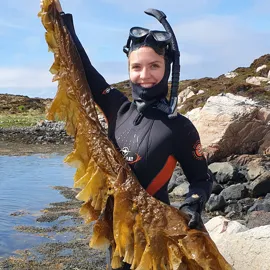
Katharina Nøkling-Eide
Sintef
Katharina Nøkling-Eide works as a researcher in the Department of Biotechnology and Nanomedicine at SINTEF Industry in Trondheim. She holds a PhD in marine biotechnology from SINTEF and NTNU and a master's degree in marine biology from the University of Oslo. Her main interest is kelp, and she works on questions related to the characterisation, preservation, processing, and product development of this biomass.
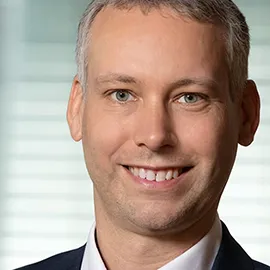
Bahne Stechmann
EU-Openscreen
Bahne Stechmann is a cell biologist by training and worked in academia and biotechnology. His PhD work led to the discovery of the first small molecules that show efficacy against ricin in animal experiments (Stechmann et al., Cell 2010). Bahne is the Deputy Director at EU-OPENSCREEN, a multinational research infrastructure initiative which supports collaborative projects in Chemical Biology and early Drug Discovery.

Ataur Rahman
UiT - Norges arktiske Universitet
Ataur Rahman is a postdoctoral research fellow in the Chemical Synthesis and Analysis Group (CSA) at the Department of Chemistry, Faculty of Science and Technology, UiT The Arctic University of Norway. His current research focuses on the health and welfare of salmon in recirculating aquaculture systems, utilizing water chemistry, metabolomics, and proteomics. He completed his PhD from the Marine Bioprospecting Group at The Norwegian College of Fishery Science, Faculty of Biosciences, Fisheries and Economics, UiT The Arctic University of Norway, where he investigated antimicrobial and antibiofilm compounds from marine bacteria and bioactivity profiling of small synthetic analogues of antimicrobial peptides.
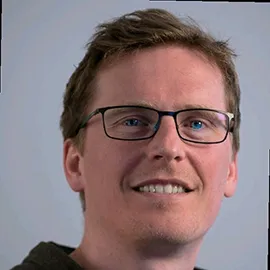
Bernd Striberny
Arcticzymes
Dr. Striberny holds a Diploma degree in Biology from the University of Kiel in Germany and a PhD in Molecular Biology from the Arctic University of Norway, Tromsø, Norway. Bernd has extensive work experience in biodiscovery of novel enzymes and molecular biology techniques. In his position as a Research Manager his responsibilities at ArcticZymes Technologies lie within personnel management, research, biodiscovery and development of new enzyme prototypes.

Alexander Wentzel
SINTEF
Dr. Alexander Wentzel works as a Chief scientist in the Research group for Environmental Biotechnology at SINTEF Industry in Trondheim, Norway. He studied Biology and holds a PhD in Molecular biology from the University of Göttingen, Germany. After two post-doc periods at the Norwegian University of Science and Technology NTNU he joined SINTEF permanently in 2010. His main research interest lies within studying microbial biodiversity in nature and exploiting it through bioprospecting for new natural products. He also heavily involves in developing innovative biotech-based solutions for the circular bioeconomy. On both topics, he is regularly leading complex interdisciplinary projects at the Norwegian national and the European level.
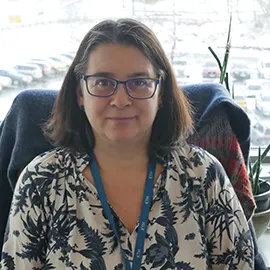
Miroslava Atanassova
Møreforskning
Dr. Miroslava Atanassova is a Senior Scientist in Biotechnology with more than 20 years of research experience, working at Møreforsking AS since November 20217. Miroslava has obtained a PhD in Biochemistry and Cell Biology from Nantes University, France and Sofia University, Bulgaria with a diploma from 2003. The PhD research was focusing on the secretion of bioactive peptides by human probiotic microorganisms. Dr. Atanassova is interested since 2010 on research related to the biofunctional properties of novel marine resources, especially bioactive protein and peptide formulations for functional food. Miroslava has been principal investigator and is currently project manager for different international research projects at Møreforsking and has been supervising bachelor's, master's degree students and, at the moment - an industry related PhD

Magnus Myhre
SINTEF Ocean
Magnus Myhre is a research scientist at SINTEF Ocean, since 2018. During the years at SINTEF, Magnus has mainly been involved in mapping and various analysis on various topics related to the Norwegian seafood industry. This includes rest raw materials, food loss, employment and economic ripple-effects. Before joining SINTEF Magnus worked at Kontali Analyse as a market analyst for 5,5 years, post graduation from the Norwegian College of Fisheries/UiT in 2012.
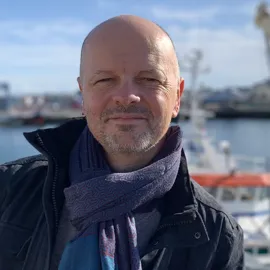
Stéphane Bach
French National Centre for Scientific Research (CNRS)
Dr. Stéphane Bach is a Senior Scientist in chemobiology with more than 25 years of research experience. He obtained his PhD degree in Agricultural Sciences and Bio-engineering from the Faculty of Gembloux Agro-Bio Tech (Belgium) in 2000. In 2001, he moved to Roscoff Marine Station (France) and developed various screening assays for the discovery or characterization of small chemical inhibitors of disease-relevant protein kinases (cancer and neurodegenerative disorders). He is now the scientific manager of the Kinase Inhibitor Specialized Screening facility (KISSf) focused on protein kinase inhibitors characterized notably from marine resources. Stéphane is also co-founder of SeaBeLife Biotech. SeaBeLife is a biotechnology company developing patented candidate molecules designed to block two forms of regulated cell death and thus protect organs (notably liver and eyes) under attack from disease. He is author of over 110 scientific publications and four patents.
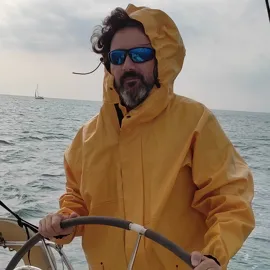
Didier Stien
French National Centre for Scientific Research (CNRS)
Dr. Didier Stien is a researcher affiliated with the French National Centre for Scientific Research (CNRS) and serves as the director of the Laboratoire de Biodiversité et Biotechnologies Microbiennes (LBBM) at the Observatoire Océanologique de Banyuls-sur-Mer, France. He earned his Ph.D. in chemistry in 1997 from the University of Marseille, focusing on the design of chiral auxiliaries to control diastereoselectivity in radical cyclizations. Subsequently, he conducted postdoctoral research at Pennsylvania State University, where he achieved the first total synthesis of the marine alkaloid agelastatin A.
Didier Stien's current research encompasses several domains linked to analytical chemistry. He investigates bacterial and fungal symbionts of macroscopic organisms, including plants, algae, and sponges, to discover innovative bioactive natural products. His work also includes studies on microbial communication systems in marine environments and the mechanisms by which algae evade viral infections, and he explores the toxicity and fate of pollutants, focusing on identifying toxicity markers in marine organisms and the biotransformation products of these pollutants.
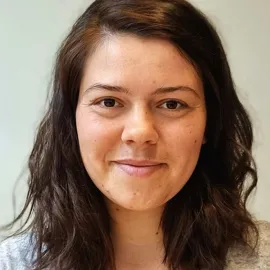
Hanna Böpple
Norce
Hanna has a background in sustainable biotechnology (MSc. Programme at AAU, Copenhagen) and a broad experience with microalgae biomass production in various photobioreactors. Her research focuses on microalgae process design, screening and selection of microalgal strains and recently on valorisation of waste streams by microalgae cultivation.
Beside the practical experience in the lab, she is very excited for the possibility to combine sustainability and microalgae research through Life cycle assessment (LCA), during previous and current projects.
Since 2022 she is a PhD candidate and connected to the SLAM-DUNK project, which aims to develop a sustainable value and logistics chain for the conversion of fish sludge into valuable products. Her focus is on the development and optimization of microalgae cultivation on residual waste streams from RAS systems and anaerobic digestate; as well as the evaluation of logistics and sustainability (LCA and TEA) of the value chain that is combining novel technologies (anaerobic digestion, pyrolysis, and microalgae) in this project.
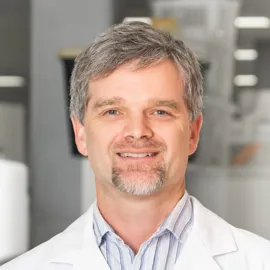
Rohan Davis
Griffith University, Brisbane
Rohan’s research involves all aspects of biodiscovery including the isolation and structure elucidation of complex natural compounds, generation of natural product-based extract and fraction libraries for HTS, as well as the design and synthesis of bespoke semisynthetic discovery libraries. Rohan has authored 183 publications, holds 2 patents and has been awarded >$5M in research funding over the past 10 years. In 2023 and 2024 he was recognised by Clarivate as a “highly cited” researcher. Rohan has led both industry and academic projects that have resulted in the identification of >1000 natural products from plant, marine invertebrate, mushroom and microbial sources. A/Prof. Davis is the Manager of NatureBank, a unique Australian biodiscovery resource located at Griffith University.

Veronika Sele
Institute of Marine Research (IMR), Norway
Veronika has extensive experience in metals and minerals in feed, fish, and seafood. She led Norway’s national monitoring program for fish feed and works on risk-based surveillance of food and feed. Her expertise includes organic contaminants and the safety of novel feed ingredients such as marine low-trophic organisms, sludge, and insects. With a background in analytical chemistry, she specializes in method development and elemental speciation, including arsenic and selenium. She is also a member of the Norwegian Scientific Committee for Food and Environment (VKM), feed working group.
